detail profile othon bastos
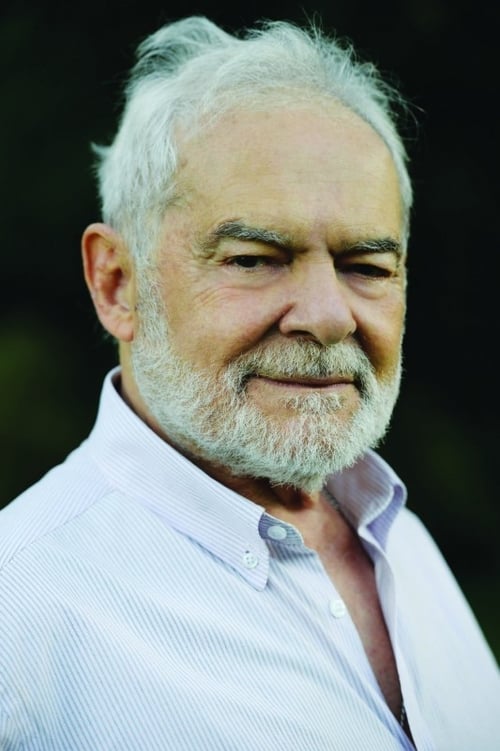
Riwayat Hidup
Othon José de Almeida Bastos (Tucano, May 23, 1933) is a Brazilian actor.
He is known for Black God, White Devil (1964), São Bernardo (1972) and O Paciente: O Caso Tancredo Neves (2018).
Info Pribadi
Peran Yang Di Mainkan Othon Bastos
 While waiting for a kidney transplant...
While waiting for a kidney transplant...Beyond the Universe 2022
While waiting for a kidney transplant, a young pianist finds an unexpected connection with her doctor — and the courage to fulfill her musical dreams.
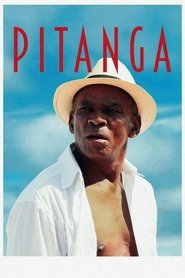 This documentary investigates the aesthetic political...
This documentary investigates the aesthetic political...Pitanga 2016
This documentary investigates the aesthetic, political and existential trajectory of emblematic Black Brazilian actor Antônio Pitanga. His career spans over five decades, and he has worked with iconic Brazilian filmmakers Glauber Rocha, Cacá Diegues and Walter Lima Jr. He was a prominent figurehead and outspoken activist during the Brazilian dictatorship, a period of unrest in Brazilian cinema. "Pitanga" deep dives into the world of Antônio and the history of Brazil. The documentary was directed by his daughter Camila Pitanga, one of widely recognised faces in Brazilian television and cinema right now. The film is also a poem, and a tender ode to fatherhood.
 Jose Henrique Fonseca crafts an ambitious...
Jose Henrique Fonseca crafts an ambitious...Heleno 2011
José Henrique Fonseca crafts an ambitious and long overdue homage to a central icon in Brazil’s 20th century history. Reminiscent of film noir classics, the biopic tells the glorious and tragic story of the legendary football striker Heleno de Freitas. The sumptuous black and white cinematography reflects the chic life of Rio de Janeiro in the 1940s as it fell under the spell of sports royalty. Heleno was no doubt one of the most popular players of his time for his bravura in the field and magnificent goal-scoring that lead the Botafogo team to the top and himself into a vicious downward spiral.
 The selfish Dr Andr Luiz dies...
The selfish Dr Andr Luiz dies...Astral City: A Spiritual Journey 2010
The selfish Dr. André Luiz dies and awakes in the limbo called "Umbral". After a painful period in the gruesome swamp, he is rescued and brought in a white light to "Nosso Lar" (meaning "Our Home"). He finds a place of harmony, where people live in peace awaiting
 Colonel Furtado struggles to keep his...
Colonel Furtado struggles to keep his...O Coronel e o Lobisomem 2005
Colonel Furtado struggles to keep his lands, the Sobradinho Farm, and win the heart of his cousin Esmeraldina. In the process, he fights big beasts, experiences the taste of a bohemian life in town, fends usurers and thieves off, and uses all his cunning to get rid of haunting entities. His rival is the man he was brought up with, Pernambuco Nogueira, a werewolf.
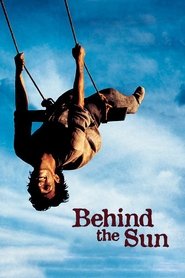 Brazilian badlands April 1910 Tonho is ordered...
Brazilian badlands April 1910 Tonho is ordered...Behind the Sun 2001
Brazilian badlands, April 1910. Tonho is ordered by his father to avenge the death of his older brother. The young man knows that if he commits this crime, his life will be divided in two: the twenty years he has already lived and the few days he has left to live, before the other family avenges their son's death. He is torn between fulfilling his ancestral duty and rebelling against it, urged by his younger brother Pacu. That's when a tiny travelling circus passes through the vast badlands where Tonho's family lives.
 Neto is a middle class teenager...
Neto is a middle class teenager...Brainstorm 2001
Neto is a middle class teenager living a normal life. After his father finds a marijuana cigarette on his pocket, he is sent to a mental institution, where he gets to know a completely absurd and inhumane reality in which people are devoured by a corrupt and cruel system.
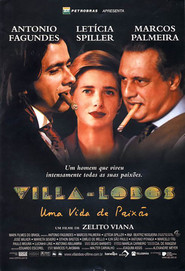 The film tells the story of...
The film tells the story of...Villa-Lobos: A Life of Passion 2000
The film tells the story of an intuitive, adventurous man who loved his country and being Brazilian. This man fought to be loyal to himself. His music is a transparent portrait of his genius, intuition, freedom, adventure and passion for Brazil.
 Fernando a journalist and his friend...
Fernando a journalist and his friend...Four Days in September 1997
Fernando, a journalist, and his friend César join terrorist group MR8 in order to fight Brazilian dictatorial regime during the late sixties. César, however, is wounded and captured during a bank hold up. Fernando then decides to kidnap the American ambassador in Brazil and ask for the release of fifteen political prisoners in exchange for his life.
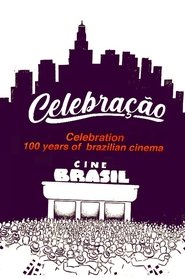 Portraits and excerpts from Brazilian films...
Portraits and excerpts from Brazilian films...Celebração - 100 Anos do Cinema Nacional 1997
"Portraits and excerpts from Brazilian films from all times. Actors, directors and images that affirm cinema."
 The principal character in Helvcio Rattons...
The principal character in Helvcio Rattons...The Nutty Boy 1995
The principal character in Helvécio Ratton's delightful film has been adapted from a book and comic created by the Brazilian cartoonist Ziraldo, and tells the tale of a happy-go-lucky 10-year-old child growing up in a city in the 60s.
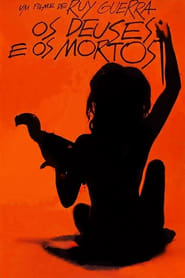 In the 1930s in the South...
In the 1930s in the South...Of Gods and the Undead 1970
In the 1930s, in the South of State of Bahia, Brazil, an adventurer with no name or history, who has already been shot seven times, gets involved in the battle for land and cacao plantations. His plan is to take the place of "Colonel" Santana, taking his wife and money. He starts a bloody conflict, in which many simple people and landowners die.
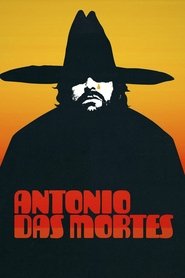 A new incarnation of Cangaceiro bandits...
A new incarnation of Cangaceiro bandits...Antonio das Mortes 1969
A new incarnation of Cangaceiro bandits, led by Coirana, has risen in the badlands. A blind landowner hires Antônio to wipe out his old nemesis. Yet after besting Coirana and accompanying the dying man to his mountain hideout, Antônio is moved by the plight of the Cangaceiro’s followers. The troubled hitman turns revolutionary, his gun and machete aimed towards his former masters.
 Wanted for killing his boss Manuel...
Wanted for killing his boss Manuel...Black God, White Devil 1964
Wanted for killing his boss, Manuel flees with his wife Rosa to the sertão, the barren landscape of Northern Brazil. Thrust into a primordial violent region, Manuel and Rosa come under the influence and control of a series of frightening figures.
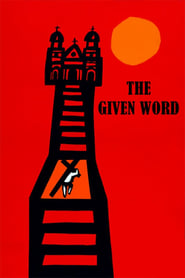 Z is a very poor man...
Z is a very poor man...The Given Word 1962
Zé is a very poor man whose most prized possession is his donkey. When his donkey falls terminally ill, Zé makes a promise to Saint Bárbara: If his donkey recovers, he will carry a cross - like Jesus - all the way from his city to Saint Bárbara's church, in the state capital. Upon the recovery of his donkey, Zé leaves on his journey. He makes it to the church, but the priest refuses to accept the cross once he discovers the context of Zé's promise.
 A group of messenger spirits led...
A group of messenger spirits led...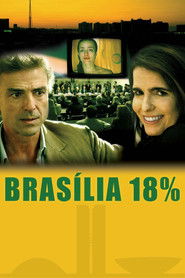 A star medical examiner is called...
A star medical examiner is called... An emotional journey of a former...
An emotional journey of a former...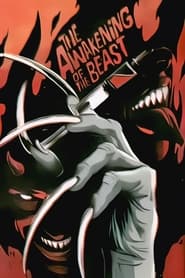 A psychiatrist experiments on four volunteers...
A psychiatrist experiments on four volunteers...